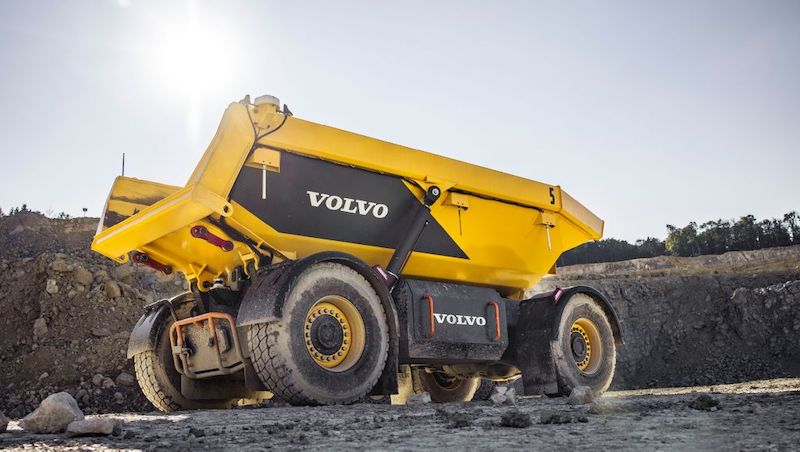
Volvo and Holcim partner on mining project to use autonomous electric haulers
Volvo Autonomous Solutions and Holcim Switzerland have entered a collaboration to jointly test and further develop the use of autonomous electric haulers in a limestone quarry.
Holcim’s quarry Gabenchopf in Siggenthal, Switzerland has been chosen as the site for this project.
The battery-electric haulers currently being tested mark a groundbreaking step in the industry: not only are they quieter and more sustainable than conventional haulers, they are also safer – in fact, they are the world’s first commercially available CE-certified electric, autonomous transport solution for the quarry and cement industries.
Nils Jaeger, president of Volvo Autonomous Solutions, says: “This project show-cases a sustainable transport solution that is commercially viable and combines the technology shifts of connectivity, automation and electrification.
“Through a strong partnership with Holcim Switzerland this will happen in a real environment driven by two committed companies dedicated to jointly presenting the future.”

Simon Kronenberg, CEO of Holcim Switzerland and Italy, says: “We are delighted to partner with Volvo on this project.
“Our participation in this project represents another step towards fulfilling our sustainability objectives: we seek solutions that are both innovative and environmentally responsible and we are constantly investing in measures to reduce our ecological footprint in order to help build a sustainable future.”
For Holcim, logistics plays a major role in the world-wide efforts to reduce the impact on climate.
Kronenberg says: “Here, we as a company can contribute already today while we continue to work on the development of CO2-reduced technologies and products.”
Related, and equally important, is the issue of renewable energy: Holcim has been using 100 percent renewable electrical energy at all sites since 2019 and makes a point of using only green energy for electrically powered vehicles such as the electric concrete truck mixers that are already in use.
The testing and likely deployment of electric haulers in its quarry is part of Holcim’s digitization initiative, “Plants of Tomorrow”.
As part of the initiative, Holcim is testing automation technologies, robotics and artificial intelligence throughout the entire production process in order to develop innovative solutions for a safer, more efficient and more sustainable cement production.
Jaeger says: “Volvo’s ambition is nothing less but to bring the future of infrastructure and transport solutions to our customers in a commercially viable way, and this innovative commercial project represents the next phase of this journey.”
Volvo first unveiled an autonomous heavy industrial vehicle when it revealed the LX03 (pictured above), which is aimed at the construction industry.
The “fully autonomous, battery-electric prototype” by Volvo Construction Equipment was the “first real-world example” of a self-learning concept wheel loader with the brains to make decisions, perform tasks, and interact with humans.
It is also the first time ever a LEGO Technic model has been turned into a real machine. While not commercially available, engineers expect that valuable insights from the LX03 will feed into applications for Volvo’s projects going forward.
